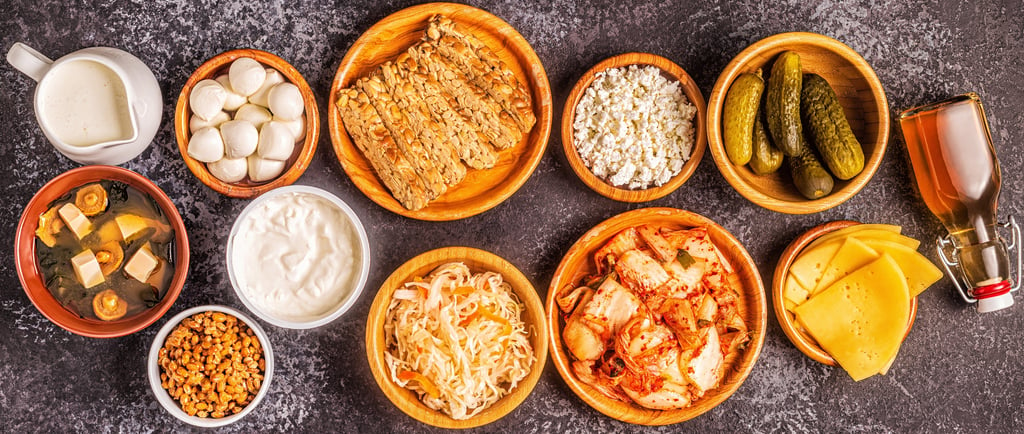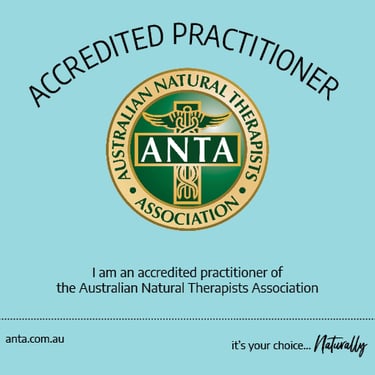What is gut dysbiosis?
We each have more than 100 trillion microorganisms existing in a complex, synergistic community within our gut, forming our unique microbiome. Yes - you heard right - over 100 TRILLION! Don't freak out - when in harmony, this microbiome plays a vital role in our health, including impacting functions relating to nutrition, metabolism and immunity. So much so that it is sometimes termed the 'forgotten organ'.
Gut dysbiosis is just a fancy name for an imbalance of the gut microbiota (gut flora/bacteria) associated with negative health outcomes. It means that what is often termed 'bad' bacteria have somewhat overpowered the 'good' bacteria to the point that the gut environment has slipped out of a state of healthy equilibrium to the point that wellness is compromised.
I don't much like the 'good' and 'bad' descriptors - they are inherently loaded words. However, I will use them in this post for colloquial understanding, with the caveat that the problem is not simply the presence of any one type of bacteria, it is a matter of ratio and balance.
What is your gut trying to tell you?
As with all imbalances within our bodies, our microbiome does not spontaneously become disrupted. It very eagerly responds to the the food that we introduce to it through our eating patterns. Therefore, dietary factors play a significant role in the development of dysbiosis. Other contributors can be antibiotic use and broader health status (e.g. psychological stress, inflammation, infections).
Our bodies are amazing but lazy. Well, more generously and accurately: they are efficient. They biologically tend to follow the path of least resistance in order to preserve resources solely for the functions required to sustain life and balance at any given time. It stands to reason, then, that our gut will only respond to the conditions it is presently experiencing. It will not foster an environment that would respond to what is absent. You get what you give.
Another way of considering the importance of our microbiome is that our gastrointestinal tract is not really on the 'inside' of us in the sense of being enclosed - it is actually an external environment that happens to be located through our centre. Like a hotdog bun that has had a hole punched through the middle to house the sausage. It acts as the conduit between the food and drink we consume and our truly internal environment, and it facilitates what comes in and what passes through and out.
It's not surprising, then, that gut dysbiosis can be a loud and clear message from our body that we are not offering ourselves the conditions we require to maintain balance and thrive.
The who's who of gut bacteria
Now that you have learned a new fancy term for your next dinner party discussion, let's look at the three broad categories of gut flora that contribute to microbiome balance.
How gut dysbiosis can affect your health
Gut dysbiosis symptoms vary from person-to-person. In the earlier stages, the different types of dysbiosis generally present with common gastrointestinal signs and symptoms such as diarrhoea, abdominal bloating and gas (excessive flatulence). You may find yourself thinking "everything I eat gives me gas and bloating".
Longer-term, these imbalances can lead to problematic inflammatory and immune responses and metabolic abnormalities, contributing to a broad range of chronic disease conditions throughout the body.
An abundance of beneficial bacteria that are functioning well, on the other hand, can have a protective effect against illness.
How to improve gut health naturally
You may be surprised by the breadth of lifestyle habits that can affect our gut health. Diet is incredibly important for a healthy gut microbiome, but so are many other activities via which we journey through the world.
There is no one-size-fits-all or silver bullet approach to rebalancing the gut. Addressing this challenge in a holistic nutrition setting requires a considered, individual and staged approach. Below are some lifestyle factors and nutrients that may be considered in your unique plan.
Lifestyle practices for microbiome balance
Depending on your needs, focusing on the following lifestyle habits may be beneficial.
A plan to build habits that help you to maintain regular physical activity.
The most effective ways to adopt healthy stress management habits and strategies.
Structuring your eating habits to avoid trans fat, refined sugar and flour and other ultra-processed foods.
Ways to best achieve any goals you may have to avoid exposure to smoking, nicotine, food intolerance triggers and other toxins.
Tips and tricks to consistently maintain adequate water intake.
How to best structure your diet to ensure you maintain a healthy quality and balance of all macronutrients.
Foods for gut health
There is no one universal gut dysbiosis diet. We always consider a variety of nutrients tailored to the individual client to rebalance, heal and address related health challenges. Having said this, below are a few foods that are directly linked to a healthy ratio of gut bacteria. This list should always be considered in the context of a broader fresh, wholefoods-based diet that supports balance throughout the whole body.
Dietary fibre (general)
Different types of fibre support different functions in the body, and are primarily found in fresh fruits and vegetables, legumes and wholegrains. They can help to address gut dysbiosis merely by facilitating movement of the gut contents out of the body, thus reducing stagnation of food that can encourage an overgrowth of 'bad' (in relation to 'good') bacteria.
A word of caution before you go on fibre frenzy, though - the wrong balance of fibres may actually exacerbate the challenges of harmonising gut bacteria. This is why it is useful to work through your diet modifications with a qualified practitioner.
Resistant starch/Fermentable fibre
This is a more specific category of fibre which is often referred to as 'prebiotic'. Prebiotics are essentially food for our beneficial gut bacteria, and therefore encourage a healthy microbiota balance and positive health outcomes. Nutritional recommendations may include assessing and adjusting your intake of foods like legumes and starchy vegetables.
Probiotics
You may have first heard of these during the kombucha craze of the 90s! They are also found in other fermented foods such as yoghurt, kefir, unpasteurised (raw) sauerkraut, tempeh, kimchi and miso. Whereas prebiotics are food for good bacteria, probiotics are some of the good bacteria that can be introduced via the diet to help restore and maintain a healthy gut microbiome. Food sources of probiotics generally contain a significantly higher number and/or diversity of bacterial strains than supplemental probiotics.
Nutrients for gut epithelium healing
A chronically disrupted microbiome can promote gut inflammation and eventually compromise the integrity of its epithelium (lining). There are many nutrients as wholefoods that can help to repair the gut and may form part of a rebalancing plan which I've not specifically addressed here. Suffice to say that any efforts to heal the tissue will be compromised unless and until the microbiome conditions are such that healthy balance is restored.
DISCLAIMER
Some of the information we provide on our website may be information related to health but it's not meant to be health "advice". We provide this information for your general use only. While we try to provide accurate information, it may be historical, incomplete information or based on opinions that aren't widely held. Your personal situation has not been considered when providing the information, so any reliance on this information is at your sole risk. We recommend seeking independent professional advice before relying on the information we provide.



